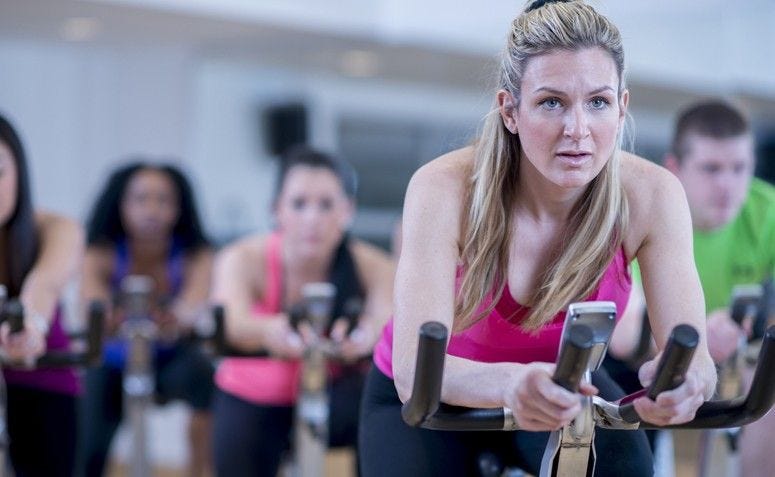Drinking water before meals, including eggs for breakfast, and chewing slowly are some of the strategies

PHOTO: GETTY IMAGES
The desire and/or the need to lose weight, today, many people constantly seek information and news about the “universe” of healthy eating, physical exercise, and tips in general about weight loss.
And “innovations” appear all the time in the weight loss market: they are products that promise rapid weight loss; foods that are “great allies” for healthy eating, others that are seen as “villains”; the “fad diet that made many celebrities lose weight” and much more.
And, in the midst of so much information, a lot of controversies, and even a certain “misinformation”, it is not surprising that so many people today are in doubt about what they can and cannot eat; about the “best diet” and/or “ideal product” that will help with weight loss!
As much as it seems obvious, many people still do not want to believe that “there is no miracle”, that healthy and permanent weight loss is actually the result of the union of several factors related to a real change in habits, in addition to a lot of willingness and focus.
However, the growing interest in the subject of “weight loss” has motivated (and still motivates) many scientists to discover strategies that, in fact, are useful in weight loss. These are not “miracle tips on how to lose weight”, but evidence-based facts. They can be trusted and assured of better results!
1. Include eggs for breakfast

PHOTO: GETTY IMAGES
Studies have shown that including them for breakfast can help you consume fewer calories in the next 36 hours, lose more weight and body fat.
But, if you can’t eat eggs for some reason, that’s fine, including another source of quality protein for breakfast will also help!
2. Drink water, especially before meals
Drinking water is essential and doing this before meals are even more effective: according to studies, it can increase metabolism by 24% to 30% over a period of one hour to an hour and a half, helping you to burn more calories.
CONTINUED AFTER ANNOUNCEMENT
Another study by Virginia Tech University (Virginia, USA) also showed that
drinking half a liter of water about half an hour before meals helped people to consume fewer calories and lose 44% more weight.
Maria Luiza S. Moura, a functional nutritionist, comments that adequate water consumption is essential in a weight loss diet. “In addition to making the body function properly, it is already a fact that drinking water helps people to eat less … Since, often, the feeling of hunger is confused with that of thirst. That is why I always remind my patients to stay hydrated throughout the day, and I should not wait for thirst to come to drink water ”.
3. Have green tea
In addition to having a little caffeine, green tea has a significant amount of catechins (powerful antioxidants), and both works in synergy to increase fat burning.
Maria Luiza highlights that green tea is a great ally for those who want to lose weight. “Like all tea, it has a diuretic effect, which is already very beneficial, but the highlight is its thermogenic effect. Remembering that it should be taken without added sugar and in a moderate way, preferably guided by a nutritionist ”, he says.
4. Drink black coffee
Coffee consumption was often criticized, but today it is known that this drink offers several health benefits, especially because it has a significant amount of antioxidants.
Regarding weight loss, studies have shown that the caffeine contained in coffee can increase metabolism by 3% to 11%, and stimulate fat burning by up to 10% to 29%.
“It’s just not worth adding sugar! The ideal is to start by adding a little sweetener and, over time, try to take it pure. Nor should it be consumed in excess; I usually recommend my clients up to three cups of coffee a day, but this can vary a lot from person to person. The ideal is to always talk to your nutritionist ”, highlights Maria Luiza.
5. Cut your food intake with added sugar
The added sugar in the most varied types of processed foods is today, one of the most worrying factors of modern food. Most people consume it excessively, and the worst: often without even knowing that they are consuming it.
The risks go far beyond weight gain. Several studies show that consumption of
sugar (and corn syrup) is associated with an increased risk of obesity, heart disease, diabetes, among other problems:
Consumption of high-fructose corn syrup in beverages may play a role in the epidemic of obesity; Sugar-Sweetened Beverages, Weight Gain, and Incidence of Type 2 Diabetes in Young and Middle-Aged Women; Sweetened beverage consumption, incident coronary heart disease, and biomarkers of risk in men.
For all these reasons, both for those who want to lose weight and for those who care about their health, it is very important to pay attention to food labels — avoiding as much as possible those containing added sugar.
“A lot of people are mistaken thinking that buying, for example, a box juice is ‘doing a good deal’, but this is a type of product that contains a lot of added sugar, it is bad for health. It is necessary to pay attention to the labels … I often tell my patients that, if they do not know what most of the ingredients shown on the label are about, it is better not even to buy the product! ”, Highlights Maria Luiza.
6. Cook with coconut oil
Coconut oil is a great health ally because it is rich in medium-chain triglycerides, which are easily absorbed and transformed into energy.
Some studies have shown that this type of fat can increase your metabolism by up to 120 calories per day, also helping to reduce your appetite and causing you to eat up to 256 fewer calories daily:
Twenty-four-hour energy expenditure and urinary catecholamines of humans consuming low-to-moderate amounts of medium-chain triglycerides: a dose-response study in a human respiratory chamber; Sweetened beverage consumption, incident coronary heart disease, and biomarkers of risk in men.
“The consumption of coconut oil is super beneficial to health and it can replace other cooking oils since it does not produce toxic products when subjected to high temperatures. However, it is worth remembering: it should not be consumed in excess, since it is fat, so the ideal is always to talk to your nutritionist and see the best way to include it in your diet ”, highlights Maria Luiza.
7. Avoid refined carbohydrates
The excessive consumption of this type of food is strongly associated with obesity, since it causes spikes in blood sugar, favoring weight gain, and making the person feel more hungry and want to eat more and more carbohydrates (causing a vicious circle).
Some studies that have already proven the harmful effects of refined carbohydrates are High Glycemic Index Foods, Overeating, and Obesity and High-glycemic Index Foods, Hunger, and Obesity: Is There a Connection?
8. Use smaller plates
It seems silly, but research has found that eating on smaller plates automatically makes one eat less. It doesn’t hurt to try, right ?!
9. Bet on a low carbohydrate diet
Several studies have pointed out the benefits of this type of diet, both for those who want to lose weight and for improving health in general: A low-carbohydrate diet is more effective in reducing body weight than healthy eating in both diabetic and non-diabetic subjects; A Randomized Trial Comparing a Very Low Carbohydrate Diet and a Calorie-Restricted Low Fat Diet on Body Weight and Cardiovascular Risk Factors in Healthy Women; A Low-Carbohydrate as Compared with a Low-Fat Diet in Severe Obesity.
“The so-called low carb diets are ‘in fashion’, which makes many people adopt it in a wrong way, harming their health. But, when well guided by a nutritionist, they do present excellent results in weight loss ”, highlights nutritionist Maria Luiza.
10. Have control over what you eat

PHOTO: GETTY IMAGES
Controlling the portions or calories consumed helps those who want to lose weight, starting from the obvious idea that, eating less, weight loss happens.
Some studies also point out that keeping a diary recording what you eat and/or taking pictures of your meals can help with weight loss: Self-monitoring in weight loss: a systematic review of the literature; Think before you eat: photographic food diaries as intervention tools to change dietary decision making and attitudes.
“Many times people really eat on impulse, repeat the meal two or three times, and, in fact, with the first dish they would already be satiated… This happens especially when you like a certain food very much. In this sense, photographing the dish before eating it or, simply, looking at it carefully can even bring an awareness that ‘there is enough’, that it is enough to kill hunger ”, comments Maria Luiza.
11. Include pepper in the diet
It is already known that cayenne pepper, for example, among other peppers, helps to speed up metabolism, as it contains capsaicin: Effects of capsaicin, green tea and CH-19 sweet pepper on appetite and energy intake in humans in negative and positive energy balance; The effects of hedonically acceptable red pepper doses on thermogenesis and appetite.
“Capsaicin is the thermogenic asset found in pepper, making it a food that, in fact, increases metabolism. Its consumption is beneficial, but it must be guided by a nutritionist, because, in some cases, it may not be well-accepted ”, highlights the nutritionist.
12. Do aerobic exercise
This is an essential measure to burn more calories, in addition to improving overall health. It is also very effective, even, to decrease the fat that tends to accumulate around the organs, which can cause metabolic disease.
13. Do weight training

PHOTO: GETTY IMAGES
One of the side effects of a weight loss diet is the loss of muscle mass, which consequently causes a metabolic slowdown. Thus, weight training, associated with aerobic exercise, is very important and effective: Metabolic slowing with massive weight loss despite preservation of fat-free mass.
14. Include more fiber in the diet
Studies show that consuming fiber helps to increase satiety, causing the person to naturally eat less throughout the day.
15. Eat more vegetables and fruits
A study at Baylor College of Medicine (US) lists the consumption of fruits and vegetables weight loss. These foods are essential because they are low in calories and good in fiber, in addition to being super nutritive in general.
16. Chew slowly
It is essential to “give the brain a little more time” to realize that it has already consumed enough to satisfy. Thus, studies show that chewing slower makes people eat less, in addition to stimulating the production of hormones linked to weight loss: Eating slowly led to decreases in energy intake within meals in healthy women; Eating slowly increases the postprandial response of the anorexigenic gut hormones, peptide YY, and glucagon-like peptide-1.
“A lot of people think it’s bullshit, but it makes all the difference for those who want to lose weight! Not to mention that chewing slowly prevents problems such as heartburn, burning, gas, etc. ”, comments Maria Luiza.
17. Sleep well
One study showed that little sleep can be associated with the development of obesity, both in childhood and in adulthood.
18. Control food addiction
A Newcastle University study found that addiction to certain foods is a factor that contributes to overeating and can lead to obesity.

If you, for example, can’t get a good handle on what you eat; exaggerate the consumption of certain foods, etc., you may be suffering from a food addiction … In this case, it is worth seeking professional help!
19. Consume more protein
A high protein diet can increase metabolism by 80 to 100 calories per day, in addition to making you feel more satiated and consuming fewer calories: Gluconeogenesis and energy expenditure after a high-protein, carbohydrate-free diet; Presence or absence of carbohydrates and the proportion of fat in a high-protein diet affect appetite suppression but not energy expenditure in normal-weight human subjects fed in energy balance.
If necessary, supplementing with whey protein can also help a lot who want to lose weight.
“It is worth remembering that supplementation should only be done under the guidance of a nutritionist. Otherwise, the effect can be negative, both for the weight loss process and for health in general ”, emphasizes Maria Luiza.
20. Don’t consume sugar-sweetened drinks
A study from Boston Children’s Hospital, for example, showed that sugar-sweetened beverages are linked to a 60% increase in the risk of obesity in children.
“The consumption of soft drinks, as well as that of industrialized ‘fruit’ juices is totally harmful to the health of children and adults… The ideal is that this type of drink is not even offered to children so that, in the near future, it does not cause problems to health and not dependence ”, comments the nutritionist.
21. Have only healthy foods at home
This is the best way to ensure that, when you feel that hunger, you do not resort to unhealthy foods (which are usually fast to eat, such as crackers, instant noodles, etc.).
“Planning the week’s menu and having everything at home also makes all the difference”, guides Maria Luiza.
22. Always give preference to “real food”
If you want to lose weight and be a healthier person, always give preference to food (instead of products) … A real food does not have a huge list of ingredients, because it is the ingredient itself.
23. Bet on a supplement with glucomannan
Glucomannan is a type of fiber that absorbs water, making you feel more satisfied and thus consume fewer calories. This is what a survey by the University of Wageningen (Holland) pointed out.
Another study found that people who used glucomannan supplementation lost more weight than those who did not use supplementation.
24. Escape from “diets”

PHOTO: GETTY IMAGES
According to one study, people who stick to “diets” tend to gain more weight over time. So, a certain piece of advice is: avoid the “fad diets”, especially those radical ones that promise great weight loss in a short time.
The way to lose weight is none other than learning to eat properly, exercising, and changing some habits.
Yes, some strategies can help, but the starting point is to be aware that there are no miracles and that the best diet to lose weight is the one planned for you, so do not hesitate to seek a nutritionist!
The information on this page is for information purposes only. They are not a substitute for advice and support from doctors, nutritionists, psychologists, physical education professionals, and other specialists.

























0 comments:
Post a Comment